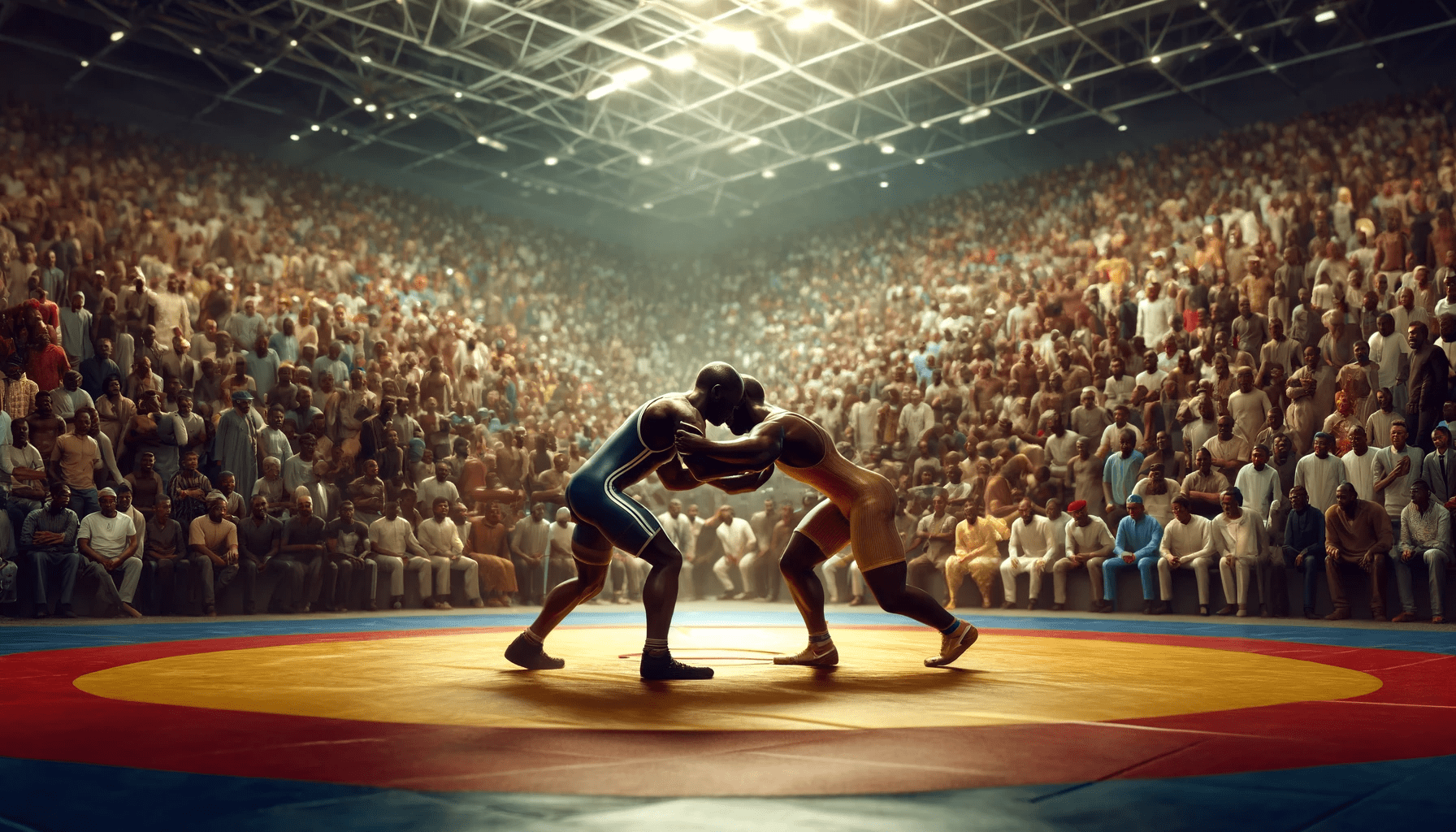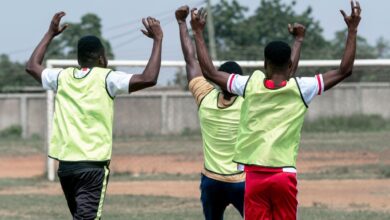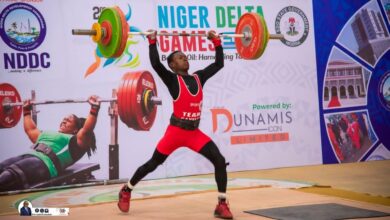Clash of Titans: The Vibrant Fusion of Traditional and Modern Wrestling in Nigeria

Wrestling in Nigeria: Tradition Meets Modern Competition
Wrestling has long been a cornerstone of Nigerian culture, embodying the spirit of its people through a blend of traditional practices and modern competitive fervor. This unique combination not only showcases the country’s rich heritage but also positions wrestling as a dynamic sport that captivates audiences worldwide. From the sandy rings in rural villages to the bright lights of international arenas, Nigerian wrestling is a testament to the country’s ability to honor its past while forging a new path in the world of sports.
The Roots of Nigerian Wrestling
Wrestling in Nigeria is not merely a sport; it is a ritual, a rite of passage, and a celebration of strength and skill handed down through generations. Traditional wrestling, or “kokawa,” has been practiced for centuries across various Nigerian communities. It was, and in many places still is, a way for young men to prove their mettle, gain respect, and even choose brides.
The Evolution into Modern Spectacle
As Nigeria marched towards modernity, so did its beloved sport. The introduction of formal rules, weight classes, and timed rounds transformed traditional wrestling into a sport that could easily find its place in the global arena. Today, Nigerian wrestlers compete not only in local tournaments but also on the world stage, bringing home medals and raising the country’s flag high.
The Role of Platforms in Promoting Wrestling
One cannot overlook the role of digital platforms in elevating the sport’s status. SureBet247, for instance, allows fans to engage with wrestling in a new way. By offering a sport bet log in, SureBet247 bridges the gap between traditional spectators and the digital audience, enhancing the viewing experience and fostering a deeper connection with the sport.
Traditional vs. Modern Wrestling: A Comparative Look
Wrestling in Nigeria beautifully encapsulates the dialogue between tradition and modernity. Here’s how the two dimensions compare:
- Techniques and Rules: Traditional wrestling focuses on grappling techniques that end with an opponent’s back touching the ground, symbolizing a knockout. Modern wrestling, however, incorporates a broader set of rules and techniques, influenced by international styles.
- Cultural Significance: Traditional bouts are often part of festivals and ceremonies, imbued with rituals that signify more than just victory. Modern competitions, while still celebrated, prioritize athleticism and sport over cultural rites.
Key Figures in Nigerian Wrestling
Nigerian wrestling has been shaped by remarkable athletes whose achievements resonate far beyond the wrestling mats. Daniel Igali, a name synonymous with excellence in wrestling, is not only an Olympic gold medalist but has also played a pivotal role in promoting and developing the sport in Nigeria. Igali’s victory at the 2000 Sydney Olympics was a watershed moment for Nigerian wrestling, inspiring a generation to dream big.
Aminat Adeniyi and Blessing Oborududu are other stalwarts who have made indelible marks on the international stage. Adeniyi, a multiple African Championships gold medalist, has been a dominant force in her weight category, showcasing the strength and resilience of Nigerian women in wrestling. Oborududu, on the other hand, made history at the Tokyo 2020 Olympics by winning a silver medal, Nigeria’s first in wrestling, catapulting her to national hero status.
The Role of Women in Nigerian Wrestling
In recent years, the participation of women in Nigerian wrestling has seen a remarkable upsurge, challenging stereotypes and breaking new ground in a traditionally male-dominated sport. Female wrestlers are not only participating but excelling, garnering accolades and inspiring a new generation of young girls to step into the ring. Athletes like Odunayo Adekuoroye and Blessing Oborududu have become household names, thanks to their success on the international stage. Adekuoroye, a World Wrestling Championships medalist, and Oborududu, Nigeria’s first Olympic medalist in wrestling, have shattered ceilings and demonstrated that women’s wrestling in Nigeria is not just about participation—it’s about domination. Their achievements underscore a significant shift in Nigerian wrestling, highlighting inclusivity and gender equality as cornerstones of the sport’s evolution.
Wrestling as a Community Builder
Wrestling events in Nigeria are more than just competitions; they are vibrant community gatherings. Families, friends, and fans come together, creating a festive atmosphere that is as much about social connection as it is about the sport. This communal aspect is a crucial element of wrestling’s enduring popularity in Nigeria.
Wrestling and Youth Development
The sport also plays a vital role in youth development, teaching values such as discipline, hard work, and respect. Through wrestling, young Nigerians learn important life skills and have opportunities for advancement both within and outside the sport.
The Future of Wrestling in Nigeria
The future of Nigerian wrestling looks bright, with increasing investment in training facilities, coaching, and international exposure. As the sport continues to evolve, it holds the promise of bringing even more glory to Nigeria, while preserving the cultural heritage that makes Nigerian wrestling truly unique.
- Investment in Grassroots Development: Focusing on nurturing young talent from the grassroots level is essential for the sustained growth of wrestling in Nigeria.
- Enhancing International Participation: Increasing participation in international competitions can raise the profile of Nigerian wrestling and provide valuable experience to wrestlers.
Wrestling in Nigeria stands as a powerful symbol of the country’s ability to blend tradition with modernity, creating a sport that is not only competitive but also deeply rooted in cultural identity. As wrestlers continue to grapple in the ring, they carry with them the legacy of their ancestors, while also writing a new chapter in the story of Nigerian wrestling.






